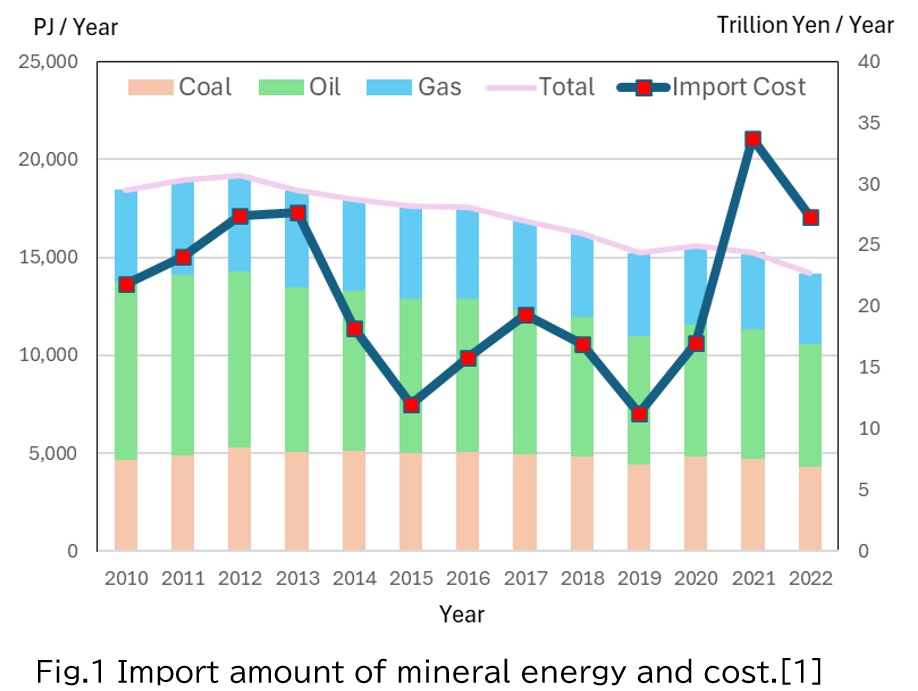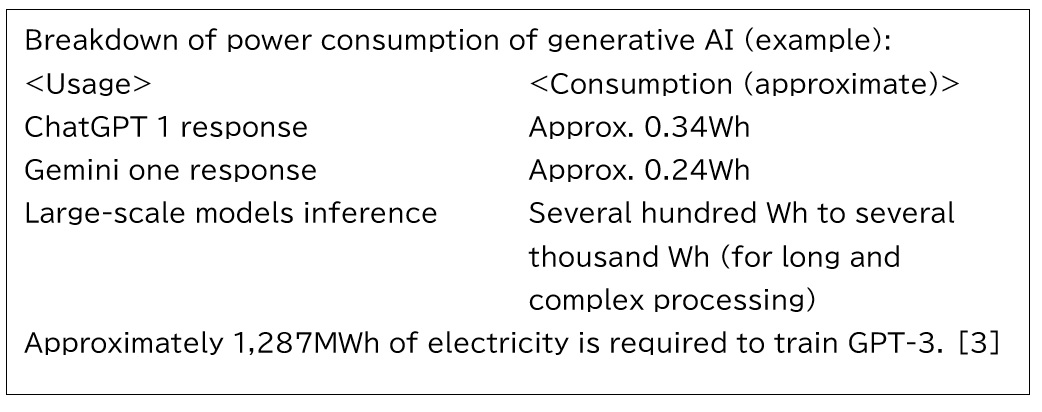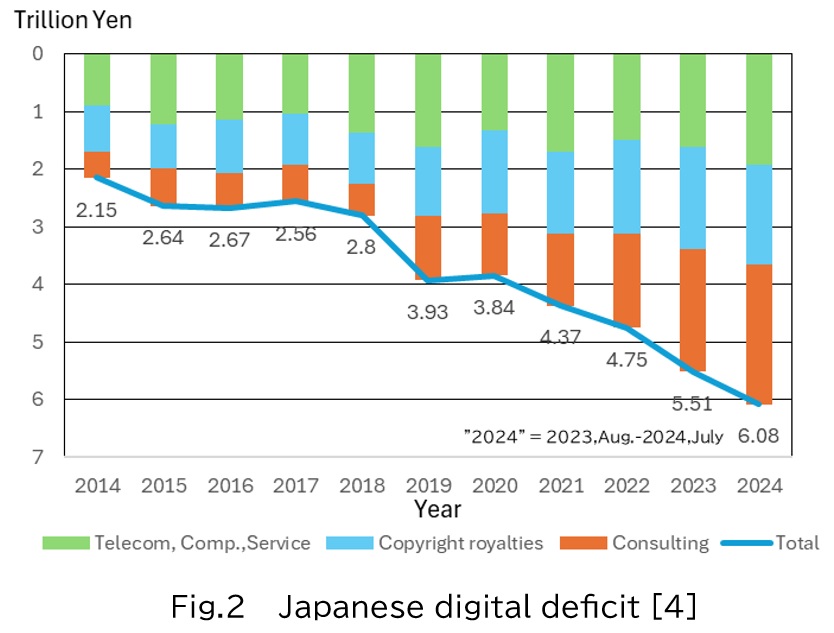Energy Consumption and Entropy
- Energy Choice Supporting the Growth of Generative AI -
11/1 2025
Author: Haru-Hisa Uchida
Today, our society requires energy to extract mineral resources from nature, shape them into materials, manufacture products, and operate those products. In a circular economy, even more energy is needed to recycle waste into resources.
In nature, the mineral and organic resources we utilize have been formed over long periods of time. This process involves the concentration of elements within the Earth's crust and on its surface, as well as the synthesis of organic matter. These transformations occur primarily through the circulation of water and heat driven by solar or geothermal energy, or through biological activity. This process of concentrating elements and energy also represents a reduction in entropy.
After obtaining materials from nature, further refining their purity, processing them, and turning them into products maximizes added value while minimizing entropy. Fundamentally, our society increases added value not only by altering chemical bonds but also by reducing entropy through energy input.
Energy costs are now increasing in Japan. Fig. 1 shows the annual changes in the import cost of mineral fuels as primary energy.[1]
Every year, we continue to spend over ten trillion yen purchasing fossil fuels that emit carbon dioxide. As a result of being heavily impacted by increases in fuel costs on the international market and the weak yen, we have spent over 20 trillion yen for several years running.

On the other hand, primary energy consumption has been gradually declining since around 2005, and more recently since 2012 (Fig. 1). The primary factors behind this trend include changes in industrial structure and improvements in energy efficiency within the manufacturing sector. Additionally, economic stagnation, population decline, an aging society, and increased awareness of energy conservation following the Great East Japan Earthquake are also cited as significant contributing factors [2].
As a response to global warming, if the shift from fossil energy consumption to renewable energy progresses in the future, an expansion of its contribution as domestically produced energy is anticipated. However, while renewable energy itself possesses vast reserves, the inherent entropy of energy is not small. Renewable energy is not suitable for use in areas requiring large and concentrated amounts of energy, such as urban and industrial areas. Local production for local consumption and other decentralized approaches are more suitable, meaning large-scale utilization of renewable energy tends to need more amount of energy.
Recently, the expansion of the information technology market, driven by factors such as the increased utilization of generative AI, has been accompanied by a corresponding rise in the energy demands required to support it.[3] In the growing number of large-scale data centers, energy is needed to drive semiconductors like CPUs and memory, and securing this energy is becoming a challenge. Furthermore, the process of gathering the necessary organized information from diverse and vast amounts of data also involves energy required to reduce the entropy of information. This is based on the principle that entropy correlates with energy. ([Entropy] ∝ log [Information quantity])
To transform the vast and diverse information required for AI operation—a state of larger entropy—into organized, useful information—a state of smaller entropy—requires energy.


Japan now relies heavily on foreign companies for the use of Internet-related information, including AI, telecommunications, computers, and information services, and this reliance is expected to grow further in the future [3]. The so-called "digital deficit" exceeds 6 trillion yen per year.
Economic activities centered on information, such as intellectual property and consulting services, which do not depend on physical goods or materials, are increasing. When processes related to information services are handled domestically via networks, energy consumption associated with this increase will also increase.
In the future, as AI agents become increasingly sophisticated and advancements in general AI and super AI are anticipated, Japan is expected to undergo drastic structural changes and expansion within its digital industries. However, the expansion of facilities such as data centers will generate significant additional energy demand, and meeting this demand with renewable energy sources is expected to present significant difficulties.
Considering that energy consumption is hidden behind highly valuable information, Japan currently relies heavily on overseas energy sources. Even if the domestic information industry becomes more active and developed in the future, we must consider how to overcome the great challenge of securing the energy supply needed to support these activities domestically.
Such considerations will, of course, need to be discussed on a global scale.
References
[1] Amounts based on Ministry of Finance trade statistics; imported energy volume based on Agency for Natural Resources and Energy Comprehensive Energy Statistics.
[2] Agency for Natural Resources and Energy
[3] Ministry of Internal Affairs and Communications, Information and Communications White Paper, 2024
[4] Nikkei XTECH, "Expanding digital deficit", from 2 October 2024.
